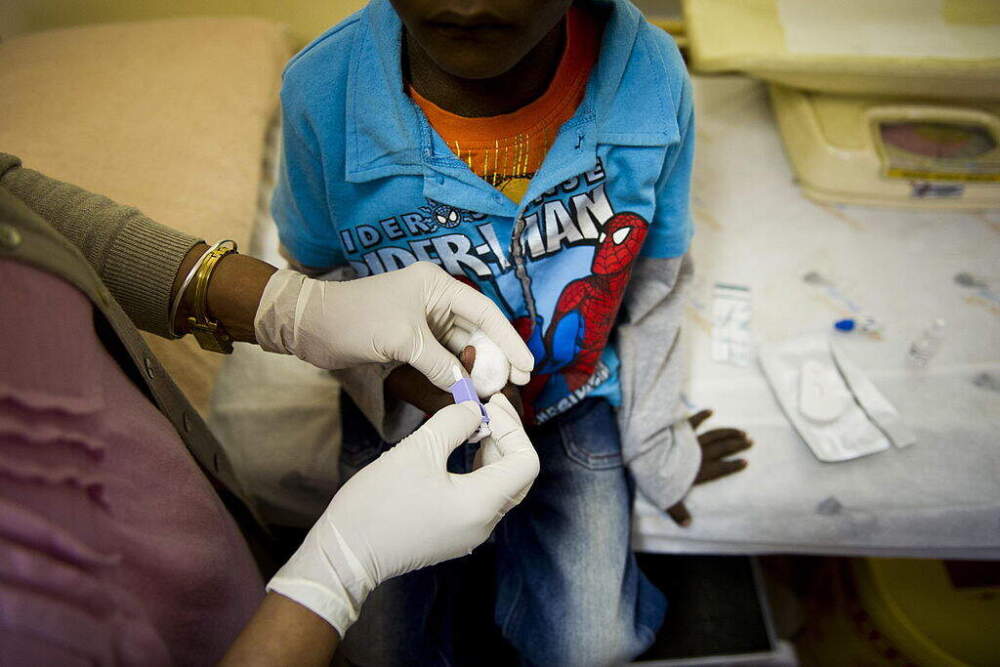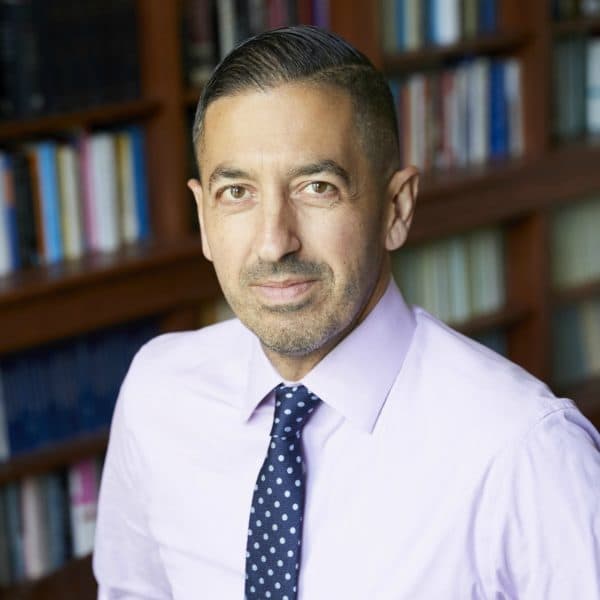Advertisement
Commentary
We should never, ever give a pass to cruelty

This is a time of change and turbulence in our national conversation. President Trump took office just over a week ago, and with this new administration has come a raft of changes.
I have written over the past few months about remaining nonpartisan, about making a good-faith effort to take a big-tent approach to public health, about leaning into hope and optimism and recognizing that there are reasons why Trump was reelected and that we should try to understand and engage with them. We should be willing, always, to listen and learn, towards gaining back some of the trust the field of public health has lost.
Donald Trump, for all that is problematic about him, is a known quantity that Americans — of sound mind and body — decided they wanted to reelect. These are facts with which we should engage and which we should seek to understand, with an open heart and open mind.
In the last two weeks, the Trump administration has acted in accordance with what it sees as its mandate to change the country and its engagement with the world. The steps it has taken are sweeping and include, among other things, withdrawing the U.S. from the Paris Climate Agreement and the World Health Organization, as well as banning DEI in the federal government, announcing an intention to reevaluate U.S. energy policy with eye towards developing domestic energy resources, pushing to end birthright citizenship and renaming the Gulf of Mexico.
PEPFAR has saved an estimated 26 million lives, mostly in sub-Saharan Africa. It is a well-respected program with a long history of bipartisan support.
This is a heterodox, wide-ranging list of actions. I disagree with many of them while acknowledging that there is room for conversation and debate about the rightness and wrongness of individual steps, and about the general turn they represent towards a new philosophy of governance. Such debate, and a willingness to entertain a plurality of perspectives, is the fundamental stuff of small-l liberalism — a subject about which I have written frequently.
However, what concerns me now is that, while I have tried to consider these actions with a measure of neutrality out of respect for the democratic process that led to them, they are not, in themselves, neutral. They affect the lives of people, of individuals. What focuses my mind as I consider what is happening, is that in a number of these actions there is a cruelty, and a disregard for the people who are caught up in the moment.
So, my concern is that in the flurry of the moment — and in the language of studied neutrality, in which executive orders are couched and responded to — we risk giving a pass to cruelty. And we should never, ever give a pass to cruelty.
Advertisement

This obligation rose to the fore, when the Trump administration imposed a 90-day freeze on foreign aid, including on global health funding which supports a range of critical programs that save lives and preserve health throughout the world. These programs include the U.S. President’s Emergency Plan for AIDS Relief (PEPFAR), which began in 2003 under the George W. Bush administration to address the global HIV/AIDS epidemic.
PEPFAR has saved an estimated 26 million lives, mostly in sub-Saharan Africa. It is a well-respected program with a long history of bipartisan support. The Trump administration’s order has led to the closure of many PEPFAR-supported clinics whose patients now face being denied their next course of lifesaving treatment. While the Secretary of State has since added exemptions to the freeze, including for programs that provide critical medications, this enforced uncertainty, which looks like a disregard for the lives and health of many, cannot be described as anything other than cruel.
When HIV treatment is disrupted, a patient’s viral levels can spike, threatening the immune system and making it likelier that the virus can be transmitted to another person. Without treatment, an estimated one in three pregnant women may pass the virus to their babies. Treatment interruptions could also lead to resistant strains of the virus, which could spread, threatening health across national boundaries. Maintaining treatment for those who need it, then, is good for these populations and it is good for the rest of us in a world where health is deeply linked — a truth which even skeptics of foreign aid would hopefully acknowledge.
Policymaking, of necessity, often entails what we might bluntly call “winners and losers.” This is just a hard truth of governance, of decision-making at the highest levels. Pursuing decarbonization, for example, can mean pain for those working in the fossil fuel industry and for the populations who may find themselves priced out of being able to heat their homes in winter. But realities like this do not mean we should not pursue policy changes that may involve such tradeoffs when we judge doing so serves the greater good. However, the necessary evils of the tradeoffs that occur in policymaking are not the same as deliberate cruelty pursued for its own sake.
We should continue being patient in this moment, to do all we can to channel the energies of this political era into the creation of a better world, even when this means working with those with whom we disagree. But, in doing so, we should not tolerate — we should not extend patience towards — the cruelty inherent in some of what has been done.
A version of this essay originally appeared in Substack.
Follow Cognoscenti on Facebook and Instagram. And sign up for our weekly newsletter.
